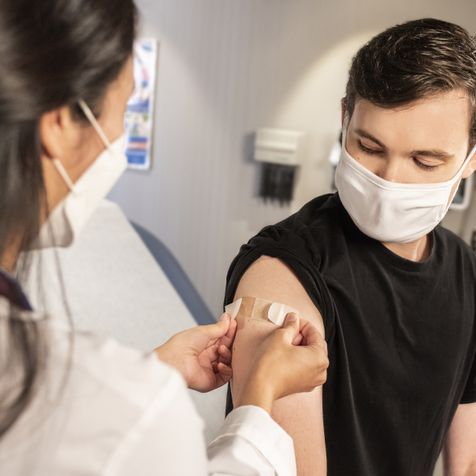

Legal news and views
Currently, under UK law it is compulsory for Care Quality Commission-registered care home staff to be vaccinated (unless medically exempt) and it will also become compulsory for frontline NHS staff to be fully vaccinated from April 2022.
There is currently no proposed legislation for the compulsory vaccination of workers or employees in roles outside the healthcare sector, but this might change in the future. According to the Office of National Statistics, as of the 17th January 2022, approximately 63% of the UK population from age 12 were vaccinated. This shows there is still a considerable proportion of the working population who are yet to get fully vaccinated.
In August 2021, ACAS published research which found that 59% of businesses said that they have been giving staff paid time off to get vaccinated. In addition, the study found that 26% of businesses had not been paying full company sick pay for covid-related sickness absences. With these points in mind as well as the fact that the government are encouraging organisations across the country to support staff in getting vaccinated, organisations may consider offering paid time off for vaccination appointments and paying staff the usual rate of pay if they are off sick with vaccine side effects.
We will discuss the legal position on this subject with regards to both employees on a contract of employment and agency workers on a contract for services.

Employees do not have the statutory right to paid time off in order to attend medical appointments, with the exception of ante-natal appointments. However, there are several reasons why employers might choose to allow time off for Covid-19 vaccinations:

The government has stressed the importance of employers supporting employees in getting fully vaccinated against Covid-19. ACAS has advised that employers can do this by discussing various factors with their employees, including:
Employers may also consider offering incentives for getting vaccinated. They might discuss offering paid time off for vaccination appointments and paying employees the usual rate of pay if they are off sick with vaccine side effects (instead of the minimum Statutory Sick Pay), as well as not counting vaccine-related absences in absence records or towards any ‘trigger’ system the employer may have.
Communication and transparency amongst employers and employees will help to agree a vaccine policy that is appropriate for both parties as well as ensuring the support of employees in protecting their health and safety, keeping good working relationships, and avoiding any disputes in the future.
Workers will be entitled to take time off to get vaccinated if there is a provision within the contract for services which states this right. Where there is no contractual entitlement, agency workers do not have the right to paid time off, with the exception of antenatal appointments, which agency workers are entitled to once they have completed the 12-week qualifying period under the Agency Worker Regulations 2010 (AWR).
However, under AWR, agency workers are entitled to equal treatment once they have completed the 12-week qualifying period. Therefore, where the hirer is allowing permanent employees to take time off to get vaccinated, qualified workers are also entitled to take time off for such appointments and refusal to allow this would be constitute a breach of AWR. Meanwhile, workers who have not completed the 12-week qualifying period, and therefore do not qualify for equal treatment under AWR, will not automatically be entitled to take time off to get vaccinated. However, it is worth noting that it would be in the best interest of hirers to offer this time off in order to encourage vaccine uptake, to reduce any workplace risks for all members of staff and ultimately to reduce the number of covid-related absences and therefore workplace disruption in the long run.
Similarly, where permanent employees are paid the usual rate of pay if they are off sick for a vaccine related reason, agency workers will also be entitled to this pay instead of the minimum statutory sick pay if they have qualified for equal treatment under AWR.

Unless there is a contractual obligation to offer employees and agency workers paid time off to get vaccinated, employers and hirers are under no legal obligation to provide staff with paid time off for such appointments. However, unreasonably refusing to allow time off for Covid-19 vaccinations for both employees and agency workers during a global pandemic could result in lower morale or resignations, which will inevitably affect productivity of staff and the reputation of the organisation.

Our Legal Bulletin is also available as a PDF here.
Share this article